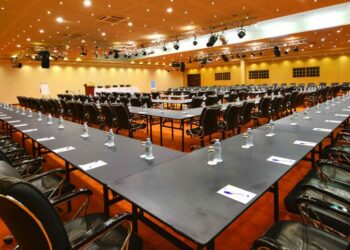By Denis Jjuuko
In 2008, South Africa’s ruling party, the African National Congress (ANC) revolted for the first time since winning the country’s first multiracial general elections in 1994 by forcing President Thabo Mbeki to resign. Thabo Mbeki, had succeeded his erstwhile boss, Nelson Mandela in 1999. Mandela had decided to pursue another career after just one term.
Thabo Mbeki was smart and eloquent and one can say was actually the leader from 1994. Mandela found other things to distract himself from the presidency but probably he also knew that the best way to have power was to give it up. So Mbeki run the country. He wasn’t as popular among the ANC though because people like Mathews Phosa and Tokyo Sexwale openly opposed him claiming that Mbeki had extremely small feet to fit Madiba’s ‘size 20’ shoes. Cyril Ramaphosa, current leader of the ANC, was said to be among those opposing Mbeki but he was smart enough not to open his mouth in public lest he ruined his presidential chances one day — a decision he can’t regret today.
Those opposed to Mbeki ended up in business acquiring a lot of wealth most of which is actually questionable. At the time, South Africa came up with a policy known as Black Economic Empowerment (BEE), which was meant to ensure that black people who had been marginalized for many decades had a say in the economy. Businesses owned by whites had to have black representations on the board and hold shares as well. That is how Ramaphosa and most of his colleagues left politics and became captains of industry. But it was also a compromise. Although Mandela is said to have preferred Ramaphosa as his successor, Oliver Tambo had spent many years grooming Mbeki as ANC’s leader in waiting. In the contest for Mandela’s successor, Mbeki took the day and Ramaphosa left active politics for business perhaps, euphuism, for wheeling and dealing.
Thabo Mbeki in order to have less interference chose and pushed for an uncharismatic Jacob Zuma as his deputy. Zuma is less educated but was popular with the equally less educated masses. He is also Zulu. Mbeki and Mandela are Xhosa. So Zuma would provide the much needed balance.
As soon as Zuma got power, he started making deals. The first scandal was the arms deal, which actually involved another Indian advisor — the flamboyant Schabir Shaik. Shaik, a Durban businessman supported Zuma with interest free loans without any specific dates to pay when Zuma had returned from exile. Shaik would later connive with Zuma to earn lucrative state defense contracts. Shaik was found guilty and when Thabo Mbeki suspended Zuma from the Deputy Presidency as a result of this case, Zuma fought back leading to Mbeki’s ouster.
Once Zuma was president, he replaced Shaik with the Gupta family — the Indian businessmen of the Sahara Computers fame who have been accused of running the government. Ministers and other high-ranking officials have said they were promised ministerial jobs by the Guptas. Corruption has ended up defining Zuma’s presidency among many other scandals. Worried about their prospects in the next election, the ANC decided to act by recalling Zuma this week. This doesn’t mean Zuma is legally required to resign but if he doesn’t, parliament can have a confidence vote. Zuma, like the proverbial cat, has nine lives as he has previously survived such votes. In South Africa, parliament elects a president, which means that the party with the majority members decide who their leader is. If the members of parliament have the same views as the top leadership of ANC, Zuma will soon become the former president and unlike Mbeki, probably end up standing trial.
The ouster of Mbeki set a precedent in South African or specifically ANC politics. The party can recall you at any time. Will this be the case in 2028? ANC leader, Cyril Ramaphosa isn’t clean either. Remember the Marikana massacre in 2012? South African police and armed forces had not used as much force as that fateful August 16th day since the apartheid regime was voted out of power leaving 34 striking Lonmin miners dead and 78 injured. Ramaphosa, a former mineworkers union leader is a shareholder in Lonmin and was on its board at the time and is alleged to have sent emails that could have ‘authorised’ those killings. If these allegations are founded, it means that Ramaphosa shouldn’t be leader of ANC today but he is. Because those who voted him in want something to have against him so he can do what they ask. Failure of which will lead to his ouster just like Zuma and Mbeki before him. Could this case and obviously how he got his wealth come back to haunt him in 2028? Time will tell.
The writer, a media consultant and businessman went to graduate school at Rhodes in South Africa. djjuuko@gmail.com. 0758111409
*Internet photo of Ramaphosa and Zuma
Do you have a story in your community or an opinion to share with us: Email us at editorial@watchdoguganda.com









